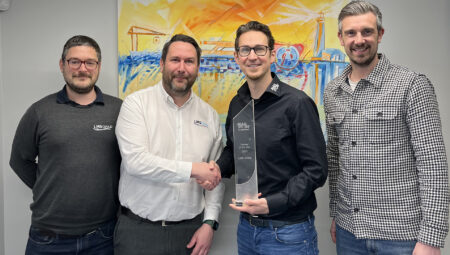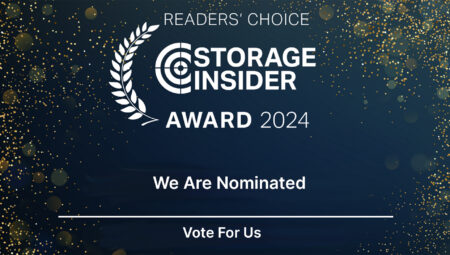Career Change: Exploring New Horizons at MailStore
“Disruption is the new normal” is the message imparted by the current OECD Employment Outlook 2019 released by the Organisation for Economic Co-operation and Development. Examining the upheavals caused by digitization, it predicts that 38.5 percent of jobs in Germany will change fundamentally and that many of us will have to change not only our job but our occupation. Working life is undergoing disruptive change. Our careers no longer develop along straight lines as was very often the case in the past (and is still considered the ideal form today). Career changes, or “exploring new professional horizons”, is becoming the model for the future simply because new jobs and forms of occupation are emerging all the time.
“Often, specialized organizations will have experts on board who, due to their expertise and similar training paths, form a highly homogeneous knowledge pool. When career-changers from outside the discipline then team up with these specialists, novel approaches and perspectives can emerge that are incredibly inspiring,” says Charlot Dams, HR Specialist at MailStore, describing the benefits for the company. “Particularly in cross-functional teams, the result is positive discourse, creativity, and, at the end of the day, innovation.”
Perfect Conditions in which to Explore New Horizons
The recent article about our colleague Christian Stelzmann, the doctor of physics who became a software engineer, illustrated how the environment at MailStore is perfect for those wishing to change careers.
Another doctor currently employed in a field far removed from his area of study is Andreas Popescu, a Program Manager at MailStore. In our chat, the historian manages to identify a link between identity in Gaul and the Rhineland during Late Antiquity and managing projects with Kanban. Because disruption plays a role in both areas.
Andreas, you’re a doctor of history – can you give us a brief résumé of your academic career?

“As a history undergraduate in Bonn, I worked as a student assistant and was a sort of IT expert for my colleagues. Later, my doctoral thesis in the Department of Rhenish History was entitled The Franks and the Roman Military. Identity in Gaul and the Rhineland during Late Antiquity.”
That has the ring of a classic academic career – what prompted you to leave university for the private sector?
“Put simply: financial constraints and future prospects. The harsh reality for upcoming scientists is that we tend to stumble along from one temporary contract to the next. I wanted to settle down and start a family, so it was clear that I was going to have to cut with the past and change careers.”
That sounds disruptive! But why did you choose IT?
“As I mentioned before, during my undergraduate days, I was the go-to person for colleagues whose PCs had stopped working or who had downloaded a virus. Also, as a research assistant in the IT Service unit of Cologne University, I held Excel courses for the Faculty of Business Management, as well as providing first-level support. So when the printer gave up the ghost, it was me who had to fix it (smiles). But after six years of temporary contracts, I realized I had to try a new approach; in strategic terms, the IT sector seemed to be the right way to go.”
And then you arrived at MailStore. Tell us how that happened.
“After an intermezzo as a freelance software tester, I began to look for a serious IT company somewhere along the Lower Rhine, and I chanced upon MailStore. As a historian, the concept of archiving immediately caught my fancy. I submitted an application “on spec” and “invented” a prospective position for myself: that of Data Research Manager. The idea evidently went down well. A day after submitting my documents, I was contacted by someone (now a really likable colleague of mine) who explained that the job I’d outlined unfortunately didn’t exist at MailStore but that the company currently had a vacancy for a program manager. As I’d evidently spent some time considering what my role in the company might be, she invited me in for a meet-up.”
Job interviews are normally pretty stressful. How was it in your case?
“It wasn’t stressful at all. Because it wasn’t an interview – more of a getting-to-know-you chat to find out whether we were a good fit. The impression I already had of MailStore was borne out: great people, open-minded on all levels, communicative, honest. What really left an impression was that my application was appraised individually. Rather than my case being filed away for a rainy day, l got the impression that the personnel department and the management had made a joint effort to find a way to deploy me based on my previous career and qualifications.”
And now you’re a Program Manager – what exactly do you do and which qualifications from your university career can you use today?
“First and foremost, I’m responsible for project management in the company. When I first joined MailStore, my job was to develop and implement projects, whereas nowadays I’m more involved in optimizing and upgrading them. Since there are no standardized “method templates” applicable to all companies, project management is a process of continuous development that has to be tailored to a company’s specific needs and requirements. It goes without saying that the skills I acquired during my studies, such as an interdisciplinary mindset, the ability to familiarize myself with complex subjects, and meeting the needs of stakeholders, are a great help in my present position. After all, my dissertation and my wholesale career change were both projects that called for a certain strategic management. I will admit, however, that – just like in scientific research – my work involves a great deal of “learning on the job” and I’m so happy that MailStore has given me the chance to do that. Incidentally, that’s a typical feature of life at MailStore: any member of staff is more than welcome to make a personal contribution: they are given responsibility quickly, and can acquire further qualifications through their work.”
We could continue the interview for ages, but Andreas has to rush off to his next stand-up meeting. If you have any queries, please submit them in the comments section of this blog.
If we’ve aroused your curiosity or you’d simply like to get to know us in person, why not give us a call or send us an email? Our coffee machine runs non-stop and visitors are always welcome.
Or do you fancy following in the footsteps of Dr. Popescu? Feel free to apply for one of the current vacancies or show us your creativity by sending us a detailed speculative application.
You’ll find all the information here: https://www.mailstore.com/en/company/jobs/






